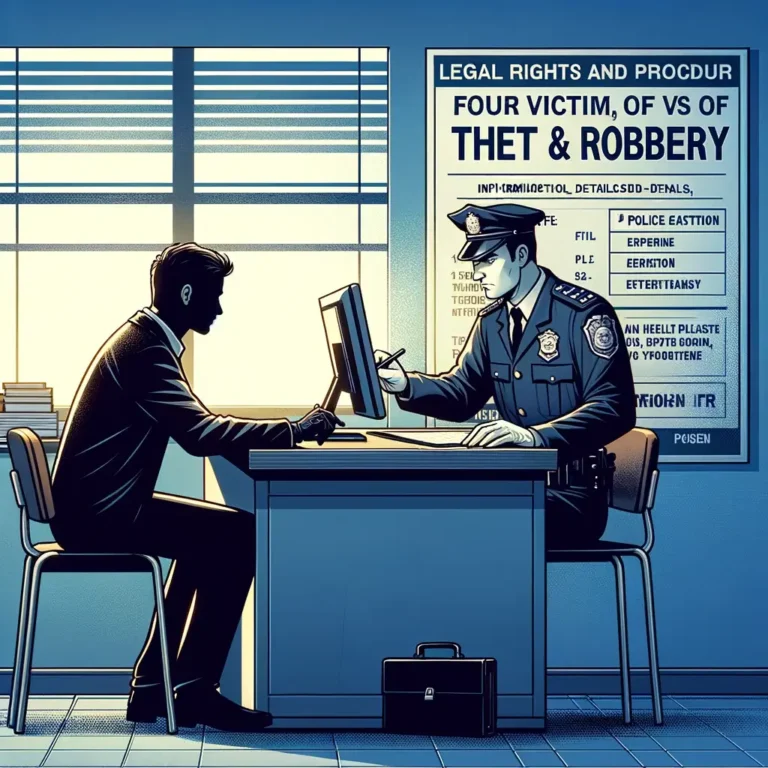In this article we have explained Role Of Trusted Criminal Lawyer Specializing In White-collar Crimes. As in the complex world of white-collar crimes, having a trusted criminal lawyer by your side is not just beneficial; it’s essential. These crimes, characterized by deceit for financial gain, encompass fraud, embezzlement, corruption, and more. Under Indian law, the consequences are severe, making the guidance of a specialized lawyer invaluable.
Understanding White-Collar Crimes in India
White-collar crimes in India are not just a breach of trust; they’re a direct challenge to the economic structure of the country. Governed by various statutes like the Prevention of Money Laundering Act, 2002, the Companies Act, 2013, and sections of the Indian Penal Code, these crimes carry hefty penalties, including imprisonment and fines.
The Essential Role of a Trusted Criminal Lawyer in White-Collar Crimes Under Indian Law
Expertise in Complex Legal Matters
A lawyer specializing in white-collar crimes possesses a deep understanding of the laws and regulations. Their expertise allows them to navigate through the intricacies of financial legislation and corporate law, providing you with the best defense strategy.
Protection of Your Rights
From the moment of accusation or investigation, your rights are at risk. A trusted lawyer ensures your rights are protected, guiding you through the legal processes and ensuring you are treated fairly by the system.
Strategic Defense Planning
Building a defense in white-collar crime cases requires meticulous planning and a strategic approach. Your lawyer will analyze the evidence, identify weaknesses in the prosecution’s case, and develop a robust defense strategy tailored to your specific situation.
Negotiation and Settlement
In some cases, negotiation or settlement might be the best course of action. A skilled lawyer can negotiate on your behalf, potentially leading to reduced charges or penalties, or even reaching a settlement that avoids trial.
Choosing the Right Lawyer: What to Look For
Specialization and Experience
Select a lawyer with a proven track record in white-collar crime cases. Their specialization and experience are critical for understanding the complexities of your case and providing effective representation.
Reputation and Trustworthiness
The lawyer’s reputation in the legal community can provide insight into their capabilities and reliability. Trustworthiness is crucial, as you will be sharing sensitive information with them.
Communication and Transparency
Your lawyer should be a good communicator, explaining legal jargon in simple terms and keeping you informed about the progress of your case. Transparency about the legal process and fees is also essential.
Compatibility and Understanding
It’s important that you feel comfortable with your lawyer. They should be approachable, empathetic, and committed to understanding your situation and objectives.
Conclusion
In the realm of white-collar crimes, the role of a trusted criminal lawyer cannot be overstated. With their specialized knowledge, commitment to protecting your rights, and strategic defense planning, they are your best ally in navigating the complexities of Indian law. Choosing the right lawyer is a crucial step toward ensuring a fair trial and the best possible outcome for your case.
FAQs on Trusted Criminal Lawyers Specializing in White-Collar Crimes Under Indian Law
1. What are white-collar crimes?
White-collar crimes refer to financially motivated, non-violent crimes committed by individuals, businesses, or government officials, including fraud, embezzlement, bribery, and money laundering.
2. Why do I need a lawyer for white-collar crimes?
A lawyer specializing in white-collar crimes can navigate complex legal systems, protect your rights, and develop a strategic defense to minimize legal repercussions.
3. Can a general practice lawyer handle white-collar crime cases?
While a general practice lawyer can legally represent you, a specialist in white-collar crimes will have the specific knowledge and experience to provide more effective defense strategies.
4. What qualifications should I look for in a white-collar crime lawyer?
Look for a lawyer with a strong background in criminal law, specifically white-collar crime, evidenced by their education, case history, and professional affiliations.
5. How do white-collar crime investigations start in India?
Investigations can begin from regulatory audits, whistleblower allegations, or financial discrepancies, leading authorities like the CBI, Enforcement Directorate, or local police to start inquiries.
6. What penalties can I face for white-collar crimes in India?
Penalties vary but can include fines, imprisonment, or both, depending on the severity of the crime and its impact on victims and the economy.
7. Can a lawyer help reduce my sentence for a white-collar crime?
Yes, a skilled lawyer can negotiate plea bargains, present mitigating factors, or challenge the prosecution’s case to potentially reduce sentences.
8. What’s the role of a lawyer during the investigation phase?
A lawyer can advise you on your rights, help you respond to inquiries, ensure lawful investigation procedures, and work to prevent charges from being filed.
9. Is it possible to settle white-collar crime cases out of court in India?
Yes, depending on the case, lawyers can negotiate settlements or plea deals to resolve the matter without going to trial, subject to legal approval.
10. How long do white-collar crime trials last?
Trials can vary from several months to years, depending on the case’s complexity, evidence, and legal procedures involved.
11. Can white-collar crimes result in civil penalties as well?
Yes, apart from criminal penalties, individuals can face civil lawsuits for damages or restitution to the victims.
12. How confidential will my discussions be with my lawyer?
Communications between you and your lawyer are protected by attorney-client privilege, ensuring confidentiality.
13. Can a lawyer defend me if I’m accused of corruption?
Yes, lawyers specializing in white-collar crimes are equipped to defend clients accused of corruption, using their expertise to challenge evidence and argue your case.
14. What is plea bargaining, and how does it work?
Plea bargaining involves negotiating with the prosecution to plead guilty to a lesser charge in exchange for a lighter sentence or other benefits.
15. How do lawyers charge for white-collar crime cases?
Fees can be hourly, a flat rate, or on a retainer basis, depending on the lawyer’s practice and the case’s complexity. Always discuss fees upfront.
16. Can a lawyer help if my company is accused of a white-collar crime?
Yes, lawyers also represent corporations, offering legal advice, defending against charges, and ensuring compliance with investigations.
17. What’s the difference between fraud and embezzlement?
Fraud involves deception to gain financially, while embezzlement refers to misappropriating funds or property trusted to one’s care.
18. How can a lawyer help if I’m charged with money laundering?
A lawyer can challenge the evidence, argue against the alleged purpose of the transactions, and work to discredit the prosecution’s claims.
19. What is the Prevention of Money Laundering Act (PMLA)?
The PMLA is an Indian law aimed at preventing money laundering and provides for the confiscation of property derived from, or involved in, money laundering.
20. Can ignorance of the law be a defense in white-collar crime cases?
Ignorance of the law is generally not a valid defense. However, a lawyer can argue lack of intent if you unknowingly violated the law.
21. What impact do white-collar crimes have on society?
They can undermine trust in financial systems, harm economies, and cause significant financial losses to victims and the public.
22. How do defense lawyers gather evidence for white-collar crime cases?
Lawyers conduct their investigations, use forensic accountants, interview witnesses, and gather documents to build a defense.
23. Can whistleblowers be protected in white-collar crime cases?
Yes, Indian law provides protections for whistleblowers, and lawyers can help ensure their rights are protected.
24. What’s the importance of forensic evidence in white-collar crime cases?
Forensic evidence can provide crucial details about the financial transactions and operations, helping to establish the facts of the case.
25. How do international laws affect white-collar crime cases in India?
International laws and treaties can influence the investigation and prosecution of crimes with cross-border elements, requiring specialized legal knowledge.
26. Can a conviction for a white-collar crime be appealed?
Yes, convictions can be appealed in higher courts, and a lawyer can help navigate the appeals process.
27. How does a lawyer prove lack of intent in white-collar crime cases?
By demonstrating that the accused did not have the knowledge or purpose to commit the crime, challenging the prosecution’s evidence of intent.
28. What is corporate compliance, and how can a lawyer help?
Corporate compliance involves adhering to laws, regulations, and ethical standards. Lawyers can advise on compliance measures to prevent white-collar crimes.
29. Can a lawyer help with asset recovery in white-collar crime cases?
Yes, they can work on behalf of victims to identify, trace, and recover assets lost to white-collar crimes.
30. How can I find a reputable white-collar crime lawyer in India?
Research lawyers with a strong background in white-collar crime, check their credentials, read reviews, and consider recommendations from legal directories or professional associations.














